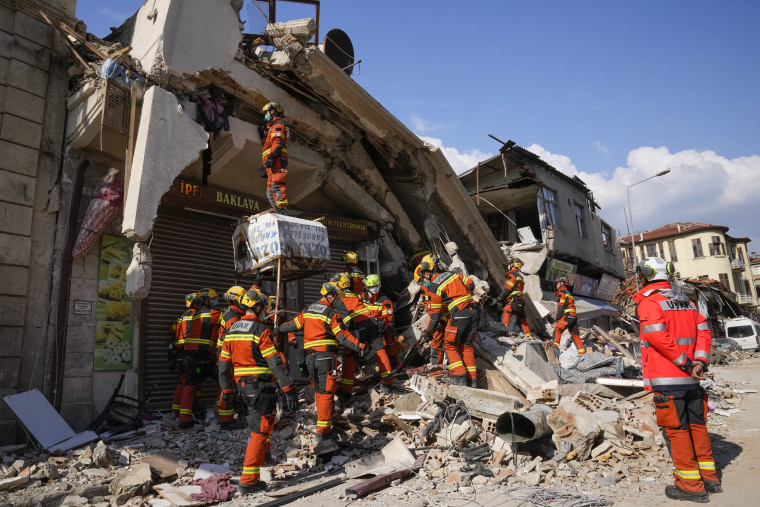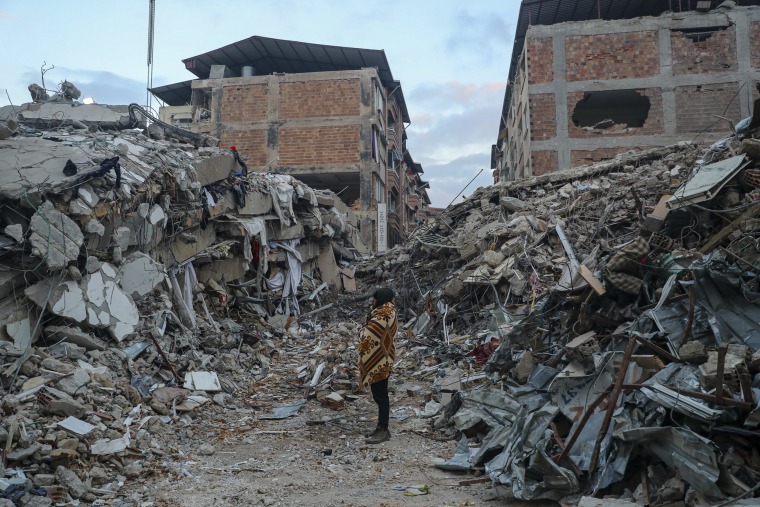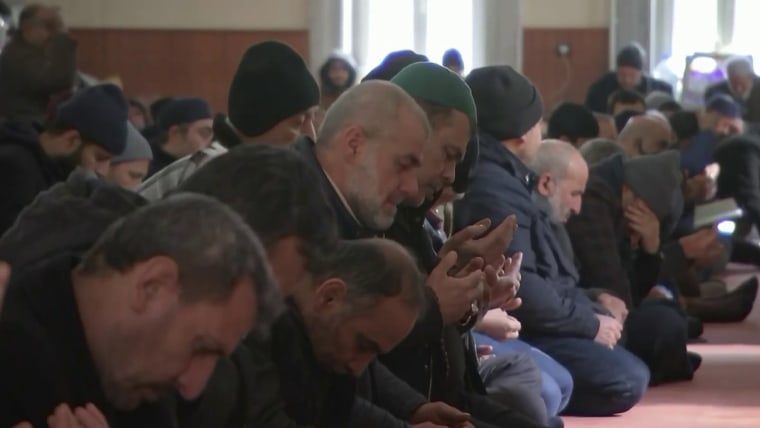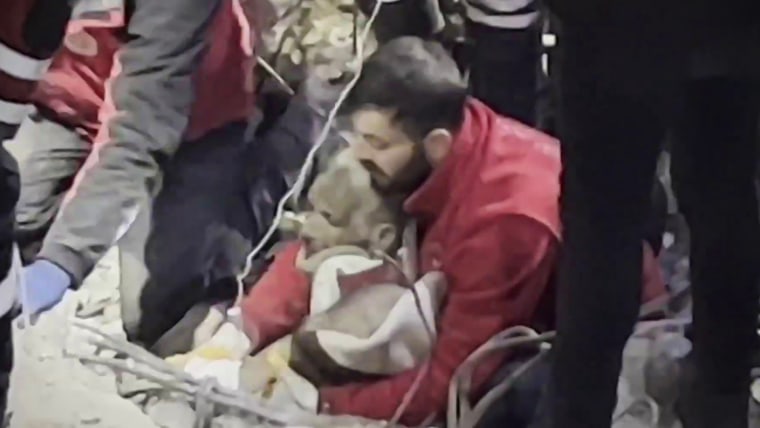Rescue hopes dwindle as earthquake death toll passes 25,000
ADIYAMAN, Turkey — As the human death toll topped 25,000, the desperation mounted with each hour that passed for those who hoped to find their relatives alive in the rubble days after two earthquakes devastated Turkey and Syria.
But as rescue workers continued their round-the-clock search in freezing temperatures Saturday, the chances of finding survivors among those trapped in concrete mounds of fallen houses and apartment blocks grew slim, and the United Nations emergency relief coordinator warned the death toll could double.
In Turkey, 67 people had been clawed from the rubble in the previous 24 hours, Vice President Fuat Oktay told reporters late Friday, as reported by the Associated Press. He added that around 80,000 people were being treated at a hospital, and more than 1 million had been left homeless and were in temporary shelters.

His comments came after NBC News witnessed Ozlem Yilmaz, 33, and her 6-year-old daughter, Zeliha, being pulled from the rubble of a building in the southeastern city of Adiyaman by Turkish miners with the help of an American rescue team.
“This is a miracle,” their relative Ilkay Yavuz said after speaking with them in an ambulance. “How can a person live in debris for five days?”
Yavuz’s joy, however, was soon tempered by the fact that Ozlem’s 11-year-old daughter, Zeynep, had died. Her husband, his cousin, Oguzhan Yilmaz, 43, was confirmed dead Saturday.
While local media reported more people had been pulled from the rubble Saturday, Martin Griffiths, the U.N. emergency relief coordinator, warned that the death toll was likely to rise.
“I think it is difficult to estimate precisely, as we need to get under the rubble, but I’m sure it will double or more,” he told British broadcaster Sky News Saturday. “That’s terrifying. This is nature striking back in a really harsh way.” (Sky News is owned by Comcast, the parent company of NBC News.)
The first of Monday’s devastating quakes struck Turkey and neighboring Syria in the early hours, and registered at magnitude- 7.8. It qualified as “major” on the official magnitude scale. Hours later, a second quake, registering at 7.6-magnitude, struck nearby.

Facing questions about earthquake planning and response times, Turkey’s president, Recep Tayip Erdogan, promised this week to start work on rebuilding cities “within weeks,” saying hundreds of thousands of buildings were now uninhabitable, while issuing stern warnings against anyone involved in looting in the quake zone.
The disaster hit as the president prepares for national elections that are scheduled to be held by June. Even before the quake, Erdogan's popularity was already eroding amid the soaring cost of living and a slumping Turkish currency. Some analysts suggested the vote would be the toughest challenge of his two decades in power.
“There’s clearly a lot of anger about both the immediate response,” Howard Eissenstat, a nonresident scholar at the Middle East Institute, a Washington D.C., think tank, said. He added that Erdogan’s government would need to work hard before the election to have any chance of winning.
“In Turkey, they have actually quite strenuous construction rules, and what is clear is that if they had been followed far few people would have died,” he said. But “everybody in Turkey knows — and I really do mean everybody — that earthquake proofing is a farce, that it hasn’t been done.”
As a result, he said, “the government is certainly going to initiate a lot of prosecutions in the immediate wake of this, so it will be doing its best to demonstrate that it takes the problem seriously, post-hoc.”
In neighboring Syria, the U.N. refugee agency estimated that as many as 5.3 million people had been left homeless. More than 3,500 have died in Syria, where death tolls have not been updated since Friday.
The disaster compounded suffering in a region beset by Syria’s 12-year civil war, which has isolated many areas of the country and complicated efforts to get aid in.
The U.N. said the first earthquake-related aid convoy crossed from Turkey into northwestern Syria on Friday, the day after an aid shipment planned before the disaster arrived.
Ahmed Mengli, Alex Holmes and Matt Bradley reported from Adiyaman and Leila Sackur from London.




No comments:
Post a Comment